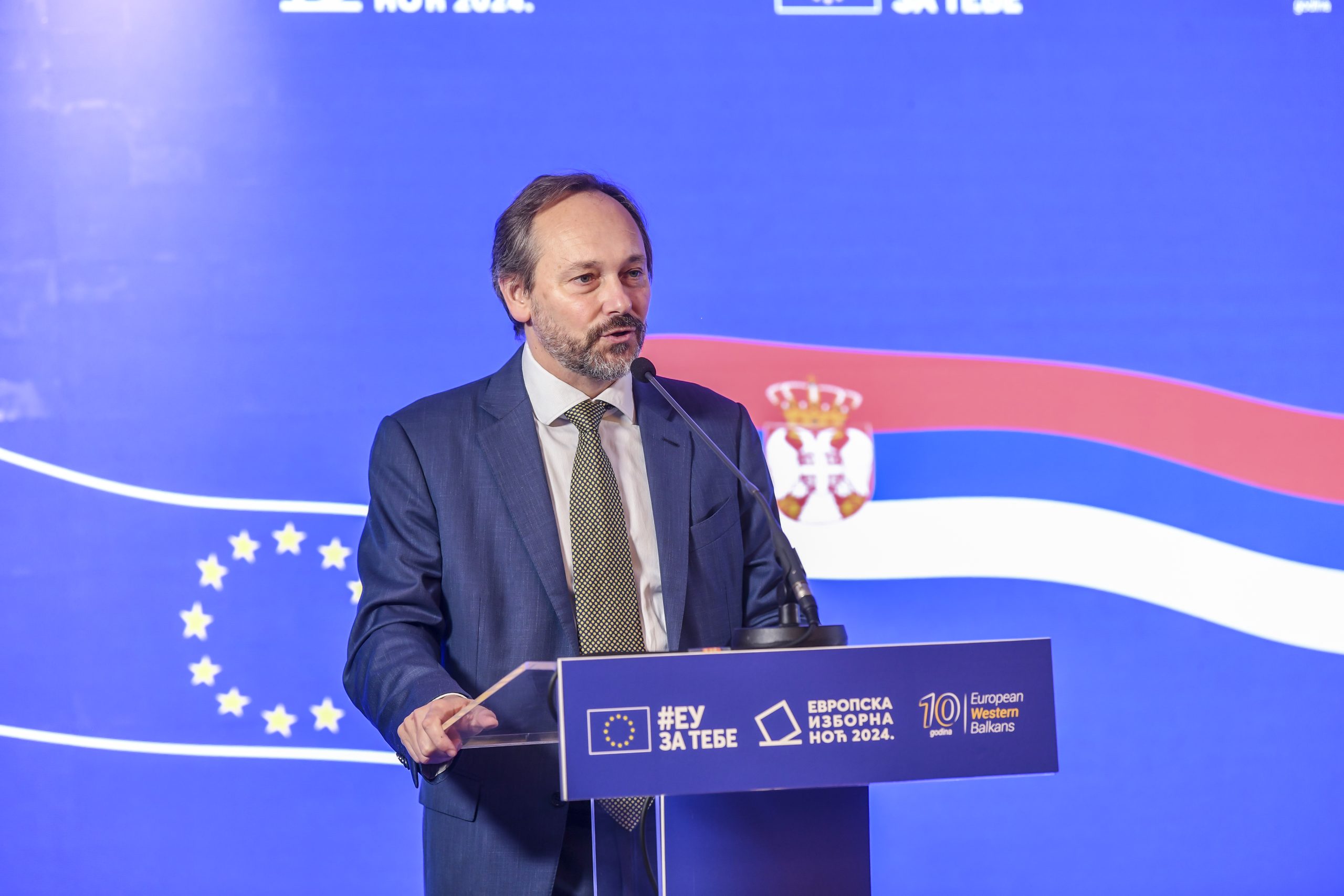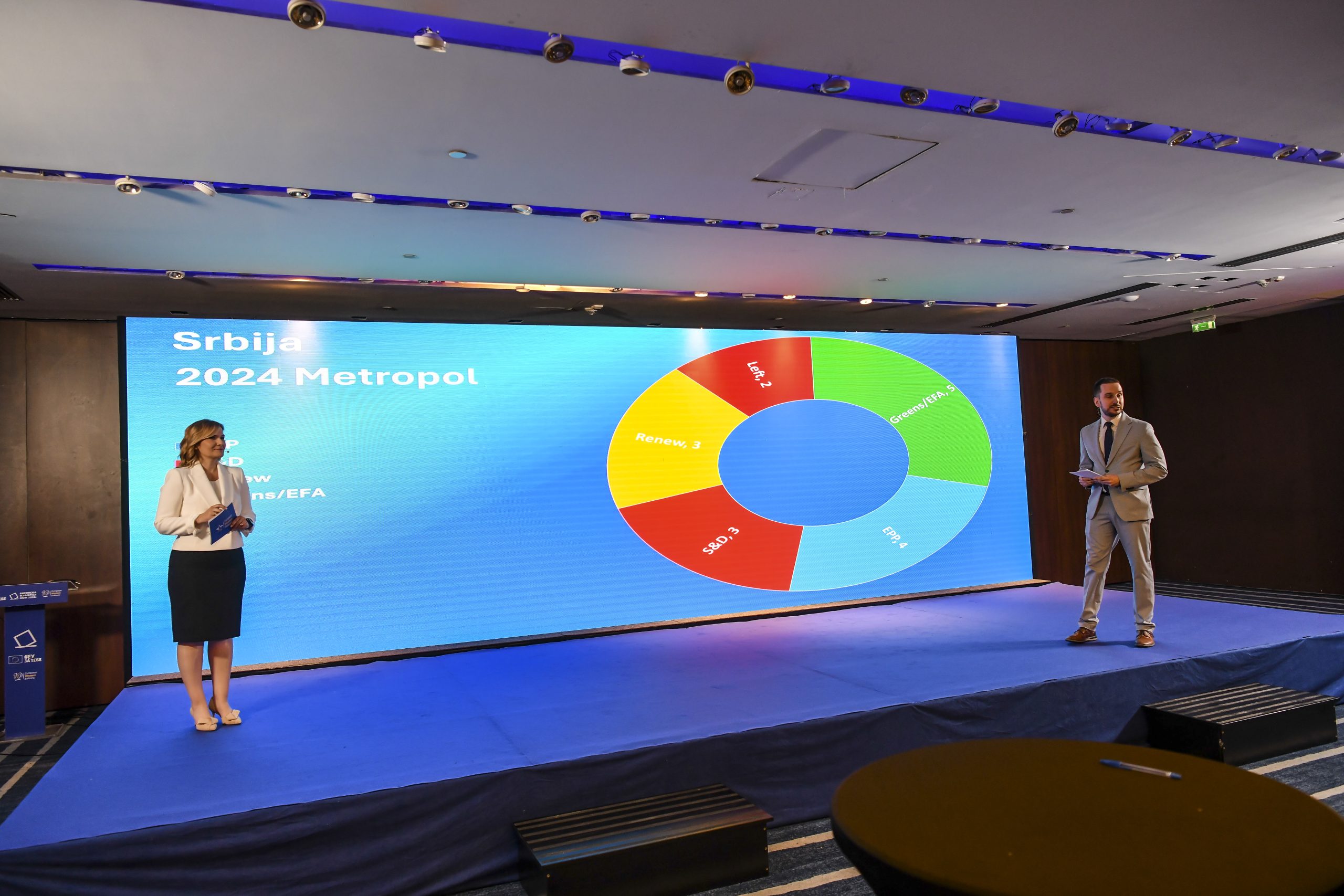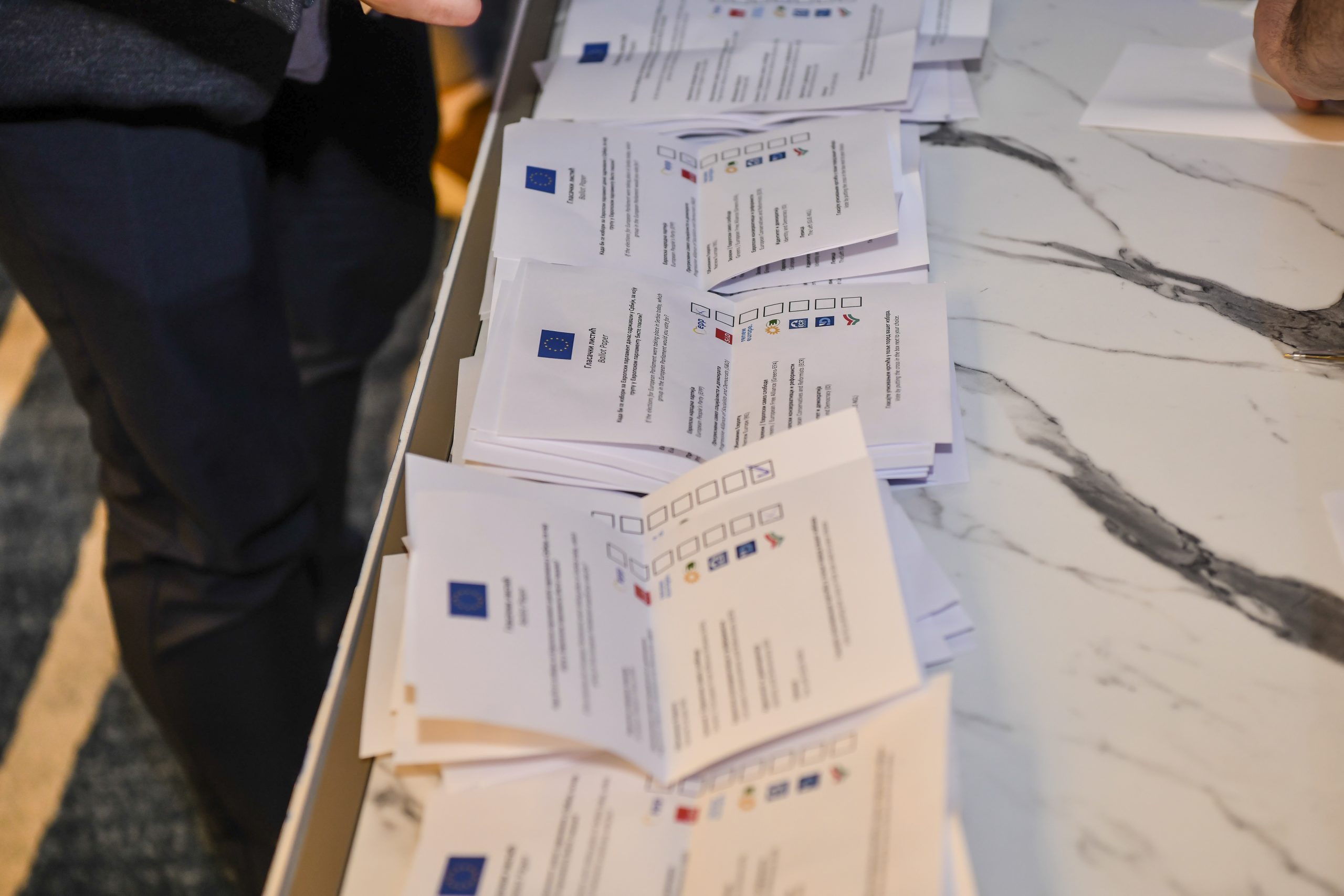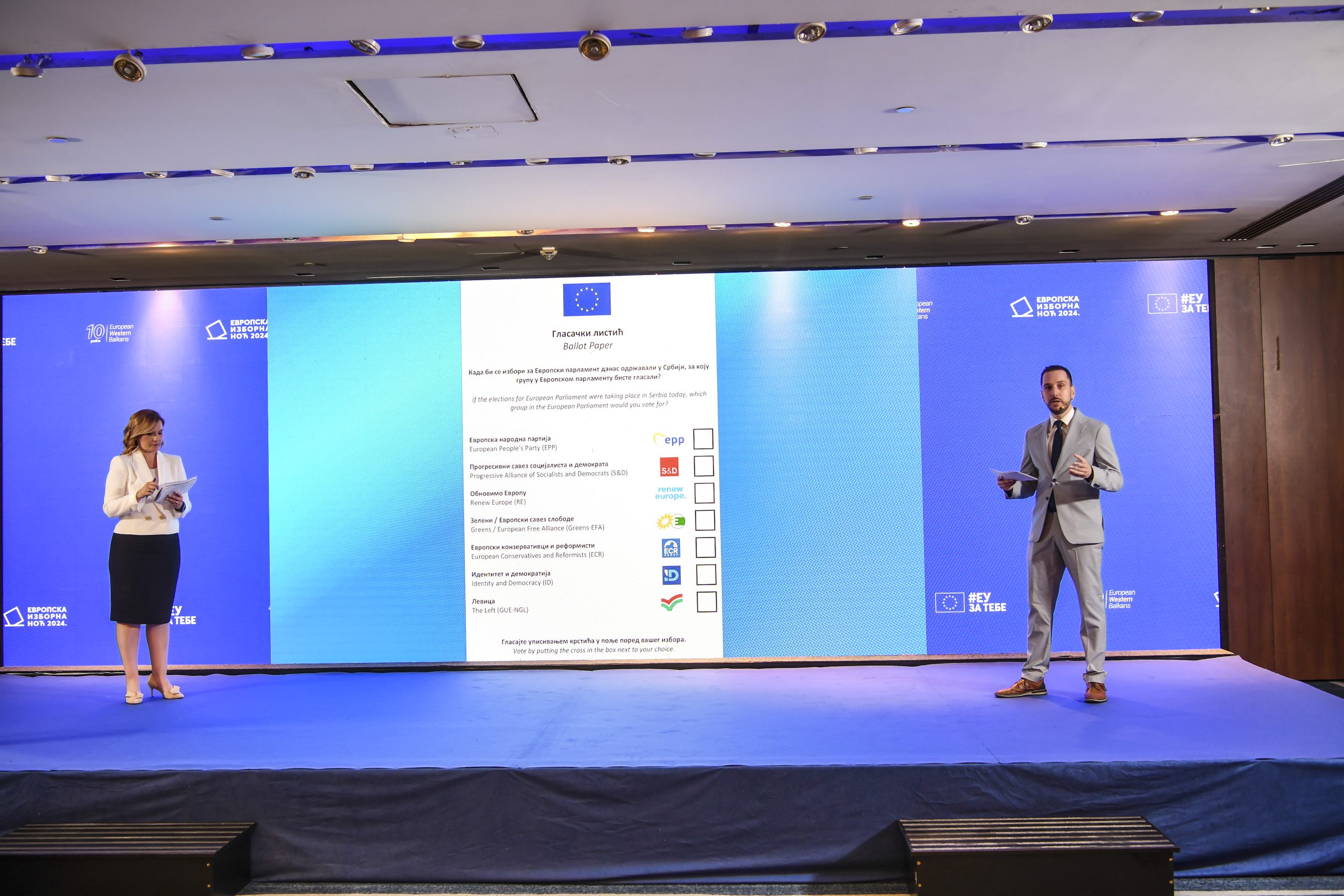Representatives of the diplomatic corps, state institutions and the non-governmental sector together watched the first results of the elections for the European Parliament in 2024, at an event organized by the Delegation of the European Union in Serbia in cooperation with the European Western Balkans portal.
In addition to following and analysing the first results from polling places throughout the European Union, guests could participate in a series of interesting activities during the election night, such as a quiz on their knowledge of Europe, they could vote for political groups in the European Parliament, and in an informal environment, the effects of the new composition of the Parliament on the global geopolitics was discussed.

The election process for the new composition of the European Parliament, the EU’s highest legislative body, lasted from Thursday to Sunday in all 27 EU Member States, and depending on the support received by their parties, 720 MPs will decide on laws that will apply to the entire Union. Germany will have the most MPs (96), and Malta will have the fewest (6).
They will be divided into political groups in relation to the affinity of political programs and ideology.

“Tonight we celebrate democracy, these elections are a process that will involve 360 million people from 27 member states. Together we will try to understand the results of these elections and we will see the trends that will characterise the European political space”, said the EU Ambassador to Serbia, Emanuele Giaufret.
After the final results, EU citizens will know which MPs will represent them in the European Parliament in the course of the next 5 years.

Together with representatives of the governments of EU countries, MEPs shape and decide on new laws that affect all aspects of life across the European Union, form economic support and the fight against poverty to climate change and security.
Members of the European Parliament focus on important political, economic and social issues and support the values of the European Union: respect for human rights, freedoms, democracy, equality and the rule of law.

Parliament approves the EU budget and examines how the money is spent. It also elects the president of the European Commissions, appoints its commissioners and calls them to account. The new composition of the European Commission and the President of the European Council will take office on December 1, 2024.




